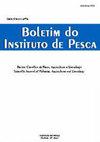The environmental licensing of hydroelectrics and the interface with migratory fish and aquaculture in Brazil
IF 0.6
4区 农林科学
Q4 FISHERIES
引用次数: 1
Abstract
In this review, we present a background on the Brazilian Federal Legislation on the environmental licensing of hydroelectric plants focusing on the procedure of the repair of environmental damage caused by dams to migratory fish. To that end, the Brazilian electrical matrix was first addressed, thus highlighting the significant contribution of the energy produced by hydroelectric projects. To better contextualize the characteristics of the legislation, separate sections concerning illustrative reports of the effects of dams on migratory fish and the current panorama of aquaculture in Brazil and in the world were included. In this review, we also present a discussion on the specific legislation concerning a mitigation measure, the “fish restocking programs,” which have the potential to promote fishing and aquaculture, but still lack a scientific basis on their effectiveness and correct application. An assessment of this historical process in Brazil indicates that different mitigation measures imposed to obtain operating licenses by hydroelectric plants vary among different hydroelectric projects and that this heterogeneity in the conditions imposed may have effects (of unknown proportions) on local fish communities. Considering the absence of a specific device foreseen in the law that requires the owner or concessionaire of dams in watercourses to provide for fish restocking programs or specific ichthyofauna conservation programs, the issue seems to depend on the discretion of the licensing agency to demand that the hydroelectric plant operators carry out the reintroduction of fish in their reservoirs. This review concludes that there are political and scientific issues to be debated and explored in order to improve public policies on this topic of extreme relevance for society.水力发电的环境许可以及与巴西洄游鱼类和水产养殖的联系
在这篇综述中,我们介绍了巴西联邦立法关于水力发电厂环境许可的背景,重点是修复大坝对洄游鱼类造成的环境损害的程序。为此目的,首先讨论了巴西的电力矩阵,从而突出了水力发电项目所产生的能源的重大贡献。为了更好地说明立法的特点,单独列入了关于水坝对洄游鱼类影响的说明性报告以及巴西和世界水产养殖现状的章节。在这篇综述中,我们还讨论了有关缓解措施的具体立法,即“鱼类重新放养计划”,该计划具有促进渔业和水产养殖的潜力,但仍然缺乏其有效性和正确应用的科学依据。对巴西这一历史进程的评估表明,水电站为获得经营许可证而采取的不同缓解措施因不同的水电项目而异,所施加条件的这种异质性可能对当地鱼类群落产生(比例未知的)影响。考虑到法律中没有具体规定要求水道水坝的所有者或特许经营者提供鱼类补充计划或特定的鱼类保护计划,这个问题似乎取决于许可机构的自由裁量权,以要求水力发电厂经营者在其水库中重新引入鱼类。这篇综述的结论是,有一些政治和科学问题需要辩论和探讨,以改善这一与社会极端相关的主题的公共政策。
本文章由计算机程序翻译,如有差异,请以英文原文为准。
求助全文
约1分钟内获得全文
求助全文
来源期刊

Boletim do Instituto de Pesca
FISHERIES-ZOOLOGY
CiteScore
0.80
自引率
0.00%
发文量
24
审稿时长
>12 weeks
期刊介绍:
To publish original articles of research and short communications in the following áreas: Fisheries, Aquaculture, Zootechnology, Limnology, Oceanography, Biology and Pathology of aquatic organisms. The publication depends on the approval of the Editorial Board, based on the peer review.
 求助内容:
求助内容: 应助结果提醒方式:
应助结果提醒方式:


